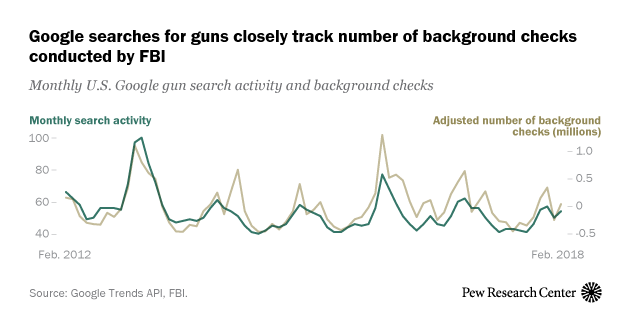 A majority of teens prefer in-person over virtual or hybrid learning. Hispanic and lower-income teens are particularly likely to fear they’ve fallen behind in school due to COVID-19 disruptions.
A majority of teens prefer in-person over virtual or hybrid learning. Hispanic and lower-income teens are particularly likely to fear they’ve fallen behind in school due to COVID-19 disruptions.- 25233Murphy2025-03-20
 Americans regard advances in artificial intelligence and human enhancement technologies with a degree of caution and uncertainty.
Americans regard advances in artificial intelligence and human enhancement technologies with a degree of caution and uncertainty.- 27631Murphy2025-03-20
 61% of U.S. adults say they have heard at least a fair amount about the phrase “cancel culture,” up from 44% in September 2020.
61% of U.S. adults say they have heard at least a fair amount about the phrase “cancel culture,” up from 44% in September 2020.- 22125Murphy2025-03-20
 Roughly one-quarter of American adults use Twitter. And when they share their views on the site, quite often they are doing so about politics and political issues.
Roughly one-quarter of American adults use Twitter. And when they share their views on the site, quite often they are doing so about politics and political issues.- 26551Murphy2025-03-20
 In April 2021, we followed up with many of the same parents surveyed in March 2020 on their children’s use of technology and social media.
In April 2021, we followed up with many of the same parents surveyed in March 2020 on their children’s use of technology and social media.- 24558Murphy2025-03-20
 The social media sites that journalists use most frequently for their jobs differ from those that the public turns to for news.
The social media sites that journalists use most frequently for their jobs differ from those that the public turns to for news. - 24749Murphy2025-03-20
 Most workers who say their jobs can mainly be done from home say they are fine with the amount of time they spend on video calls.
Most workers who say their jobs can mainly be done from home say they are fine with the amount of time they spend on video calls.- 29252Murphy2025-03-20
 Experts are split about the likely evolution of a truly immersive “metaverse.” They expect that augmented- and mixed-reality enhancements will become more useful in people’s daily lives. Many worry that current online problems may be magnified if Web3 dev
Experts are split about the likely evolution of a truly immersive “metaverse.” They expect that augmented- and mixed-reality enhancements will become more useful in people’s daily lives. Many worry that current online problems may be magnified if Web3 dev- 24808Murphy2025-03-20
 While 27% of U.S. adults say they have heard of Telegram, only 2% use the alternative social media app for news.
While 27% of U.S. adults say they have heard of Telegram, only 2% use the alternative social media app for news.- 22915Murphy2025-03-20
 Here are five facts about political content on Twitter, such as the content and nature of these posts.
Here are five facts about political content on Twitter, such as the content and nature of these posts.- 22405Murphy2025-03-20
 The landscape of social media is ever-changing, especially among teens who often are on the leading edge of this space. A new survey of American teenagers ages 13 to 17 finds that TikTok has established itself as one of the top online platforms for U.S. t
The landscape of social media is ever-changing, especially among teens who often are on the leading edge of this space. A new survey of American teenagers ages 13 to 17 finds that TikTok has established itself as one of the top online platforms for U.S. t- 29972Murphy2025-03-20
 Black Americans are critical of key aspects of policing and criminal justice. But their views on face recognition technology are more nuanced.
Black Americans are critical of key aspects of policing and criminal justice. But their views on face recognition technology are more nuanced.- 26012Murphy2025-03-20
 Here are key facts about the alternative social media service Rumble, an online video-sharing platform founded in 2013.
Here are key facts about the alternative social media service Rumble, an online video-sharing platform founded in 2013.- 28217Murphy2025-03-20
 16% of U.S. adults say they have ever invested in, traded or used a cryptocurrency such as bitcoin or ether.
16% of U.S. adults say they have ever invested in, traded or used a cryptocurrency such as bitcoin or ether.- 26374Murphy2025-03-20
 Women in the U.S. are less likely than men to say that technology has had a mostly positive effect on society (42% vs. 54%).
Women in the U.S. are less likely than men to say that technology has had a mostly positive effect on society (42% vs. 54%).- 21279Murphy2025-03-20
 Prominent accounts on Twitter are more likely than those on alternative social media sites to link to print publications, TV and wire services.
Prominent accounts on Twitter are more likely than those on alternative social media sites to link to print publications, TV and wire services.- 25327Murphy2025-03-20
 A majority of teens say a welcoming, safe online environment is more important than people being able to speak their minds freely online.
A majority of teens say a welcoming, safe online environment is more important than people being able to speak their minds freely online.- 22428Murphy2025-03-20
 One-in-five federal, state and local candidate tweets in 2022 have mentioned race, abortion, education or the economy.
One-in-five federal, state and local candidate tweets in 2022 have mentioned race, abortion, education or the economy.- 25673Murphy2025-03-20
 About one-in-ten U.S. adults have heard of Gab, an alternative social media site, and 1% say that they get news there regularly.
About one-in-ten U.S. adults have heard of Gab, an alternative social media site, and 1% say that they get news there regularly.- 20403Murphy2025-03-20
 One-in-ten U.S. adults have heard of the alternative social media site Gettr, and only 1% say they regularly get news there.
One-in-ten U.S. adults have heard of the alternative social media site Gettr, and only 1% say they regularly get news there.- 29990Murphy2025-03-20
 Read key findings from an analysis that looks into the public's interest in guns as potential consumer products, rather than as a subject of general interest.
Read key findings from an analysis that looks into the public's interest in guns as potential consumer products, rather than as a subject of general interest. A majority of Americans say they use YouTube and Facebook, while use of Instagram, Snapchat and TikTok is especially common among adults under 30.
A majority of Americans say they use YouTube and Facebook, while use of Instagram, Snapchat and TikTok is especially common among adults under 30.






















